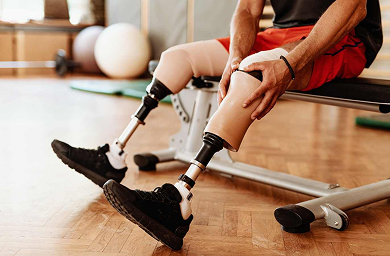The healthcare sector is undergoing rapid change due to Artificial Intelligence, as this modern technology brings about fundamental modifications to the operations of medical services and management. According to studies, the global AI in the healthcare industry started in 2023 with USD 19.27 billion. Experts predict it to continue growing at a 38.5 percent annual rate of growth (CAGR) from 2024 to 2030. It will increase to USD 187.7 billion in 2030. Healthcare institutions are currently experiencing the challenge of increasing their use of AI technology while trying to create new applications for healthcare using these new solutions.
Healthcare facilities are implementing AI technology at a growing pace through their operations. IBM and Microsoft joined forces with IDC to conduct the study in March 2024, which found the fact that a majority of health establishments have implemented AI systems and earned USD 3.20 in revenue from every USD spent, while achieving the ROI in 14 months. Medical institutions are quick to adopt AI-driven solutions and services since they trust the systems to solve complicated issues while also reducing operating expenses.
What is AI?
Artificial Intelligence operates as the ability of machines to mimic human cognitive abilities, specifically in computers. AML handles three different functions that include learning to collect information and establish rules, and then applying them to make conclusions and self-correcting processes. AI within healthcare integrates a variety of technological elements, like machine learning, natural language processing, and robotics, to analyze complex medical information for better clinical management choices.
AI-Driven Solution Development in Healthcare
Medical Imaging and Diagnostics
The growth of AI-based solutions for diagnostics and medical imaging leads to the earlier identification of illnesses which including cancer, for patients. Medical imaging AI technologies provide precise evaluations of images that researchers in radiology might not be able to detect during their tests.
The recent budgetary cuts to AI cancer technologies within England have led experts to anticipate higher mortality rates for patients who have delayed radiotherapy treatments. Many accurate diagnoses are made faster by using AI technology for diagnosing, which leads to an improved healthcare system for patients.
Drug Discovery and Development
Advanced drug discovery techniques that are pre-planned using AI-based technology allow businesses to accelerate new drug processes for development at a lower cost. Artificial intelligence algorithms comb through massive amounts of data to anticipate interactions between medicines and identify possible assets for trials.
Pharma firms Johnson & Johnson and Merck have introduced employee education using AI due to their understanding that AI technology can transform many areas of the development of drugs. The use of AI can reduce the time spent on research since it provides emergency medications to patients faster.
Predictive Analytics and Disease Prevention
Predictive analytics, along with functions for preventing disease, can be made easier because of AI-based software that allows healthcare professionals to spot and prevent diseases at earlier stages. AI models analyze the electronic medical records (EHRs) as well as other information on patients to identify patients at risk of developing the disease, thereby making early intervention feasible.
Healthcare providers use predictive analytics to aid in the forecasting of admissions for patients, which aids them in managing their resources and lessening pressure on the health system. Artificial intelligence-powered solutions developed in this area improve efficiency and operational effectiveness while providing superior healthcare benefits to patients.
AI-Driven Solutions Services Enhancing Patient Care
AI-Powered Virtual Assistants
Artificial Intelligence-powered virtual assistants and solutions are now improving healthcare delivery by performing routine tasks and taking healthcare workers away from administrative tasks. AI-powered medical assistants powered by artificial intelligence technology could let patients schedule appointments and respond to medical queries while offering prescription reminders. With the help of digital assistants, medical professionals will be able to provide higher levels of patient care and better quality healthcare.
Medical Note-Taking and Documentation
The amount of money invested in AI medical note-taking apps grew between $390 and $800 million by 2023, up to 800 million by 2024, due to the fact that healthcare providers need technologies to improve the process of clinical documentation. Medical AI applications automatically generate documents that are time-sensitive and summarize from patient sessions without the need for manual documentation of patients. Medical providers employ automation tools in their processes to make it easier for staff members to have time to focus on patient interaction, which allows them to keep up-to-date and error-free medical records.
Robotic Surgery and Rehabilitation
AI-based solutions allow healthcare personnel to design enhanced, precise robotics systems that limit the effect of surgery on patients. With AI-powered robotics, doctors can get assistance in the most advanced procedures in medicine, improving accuracy and reducing times for healing. Integration of AI technology via wearable devices offers patients constant information regarding their healing state and tailors their therapy plan to improve outcomes of treatments.
AI in Mental Health Support
Mental health assessments are two AI-powered solutions to help patients suffering from mental illness with AI-powered services. Patients can access cognitive behavior therapy (CBT) methods using AI-powered chatbots or applications that monitor their mood and offer emergency assistance. These services increase access by making mental health services closer to a variety of viewers.
The Future of AI in Healthcare
The advancement of AI-driven solutions transforms healthcare into an increasingly innovative system that puts patients at the heart of. Doctors are expecting AI-driven solutions to provide more sophisticated integration capabilities that integrate with wearable technology to offer live health monitoring and the ability to detect disease early. The fusion of the generative sciences and personalized healthcare as well as remote medical services, will enhance the client experience and ensure accessibility to health services of high-quality and quality.
AI healthcare applications require the proper handling of privacy concerns as well as ethical evaluation and regulatory requirements to achieve wide-ranging integration of the healthcare sector. AI-driven solutions can bring about the industrialization of healthcare by ethical management of technology, which produces better medical outcomes and efficiency in operations.
Conclusion
AI plays an important part in the healthcare industry, which transcends transformation to produce an entire restoration of the healthcare industry. AI-driven solution development, along with AI-driven solutions, will result in better healthcare environments by collaborating with expert humans.





